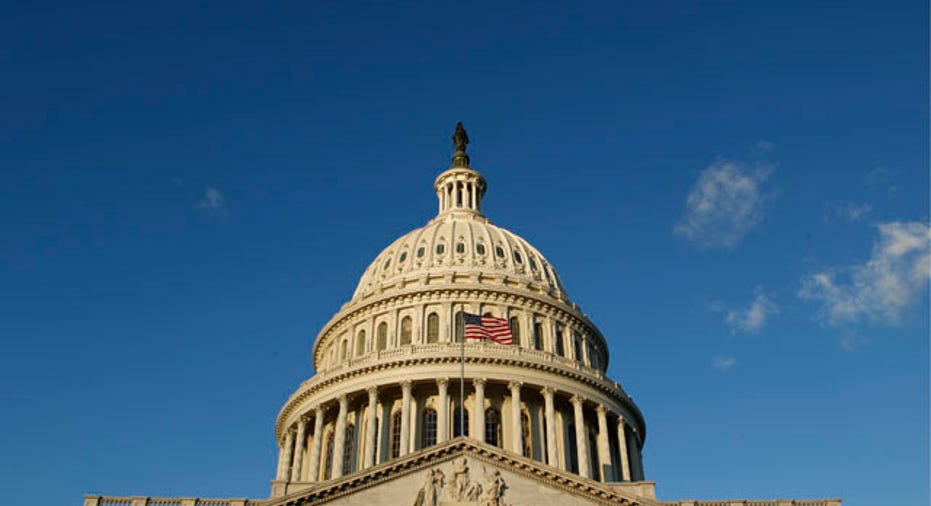Boehner Stakes Out GOP Debt Ceiling Position

House Speaker John Boehner (R-Ohio) has set lawmakers toward another clash over increasing the debt ceiling, maintaining last summer’s Republican demand for the next request to increase the federal government’s borrowing limit.
“When the time comes, I will again insist on my simple principle of cuts and reforms greater than the debt limit increase,” said Boehner, according to prepared remarks to be delivered in Washington Tuesday. “This is the only avenue I see right now to force the elected leadership of this country to solve our structural fiscal imbalance.”
Speaking earlier at the same event, Treasury Secretary Tim Geithner said, “We hope they do it this time without the drama and the pain and the damage they caused the country last July.”
Geithner said the Treasury Department can keep the federal government under the current debt limit until the early part of next year.
Aides in both parties have said they expect congressional leaders to hold off intense negotiations on the debt ceiling and trillions in expiring tax provisions until after the election, giving Congress about two months to address a massive schedule of pressing and politically difficult issues.
Boehner will also announce Tuesday afternoon the House’s intent to vote on a proposal “to stop the largest tax increase in American history” with the December 31 expiration of the 2001/2003 federal income tax rates. The bill will “establish an expedited process by which Congress would enact real tax reform in 2013 … (to create a) tax code that maintains progressivity, taxes income once, and creates a fairer, simpler code.”
The House Speaker leaves the details of the tax overhaul to the House Ways and Means Committee and Chairman Dave Camp (R-MI).
The Obama Administration and congressional Democrats continue to insist that current temporary lower tax rates remain only for families earning less than $250,000 a year. For those earning more, Democrats are pushing to allow rates to revert to 2000 levels, with additional increases on taxpayers who itemize deductions.
During President Obama’s term, Congress has temporarily resolved these issues. In December of 2009, Democrats agreed to extend tax rates for all earners for two years in exchange for an extension of long-term unemployment insurance and a temporary cut in the payroll tax rate.
Last summer, only hours before the Treasury Department’s stated deadline, Congress agreed to increase the debt ceiling with a convoluted mechanism that including the creation of the “super committee.” That committee failed in its charge to identify about a $1 trillion in spending cuts, and the federal budget now faces automatic cuts of that amount over the next decade as a consequence.
The Department of Defense is the target of half of those automatic cuts. Defense Secretary Leon Panetta called the across-the-board cuts “a stupid thing … put(ting) a gun to their (Congress’)heads and to the head of the country.”
After November’s elections, three years of temporary compromises, extensions and patchwork legislating come due, leaving an outgoing Congress to address it all.



















